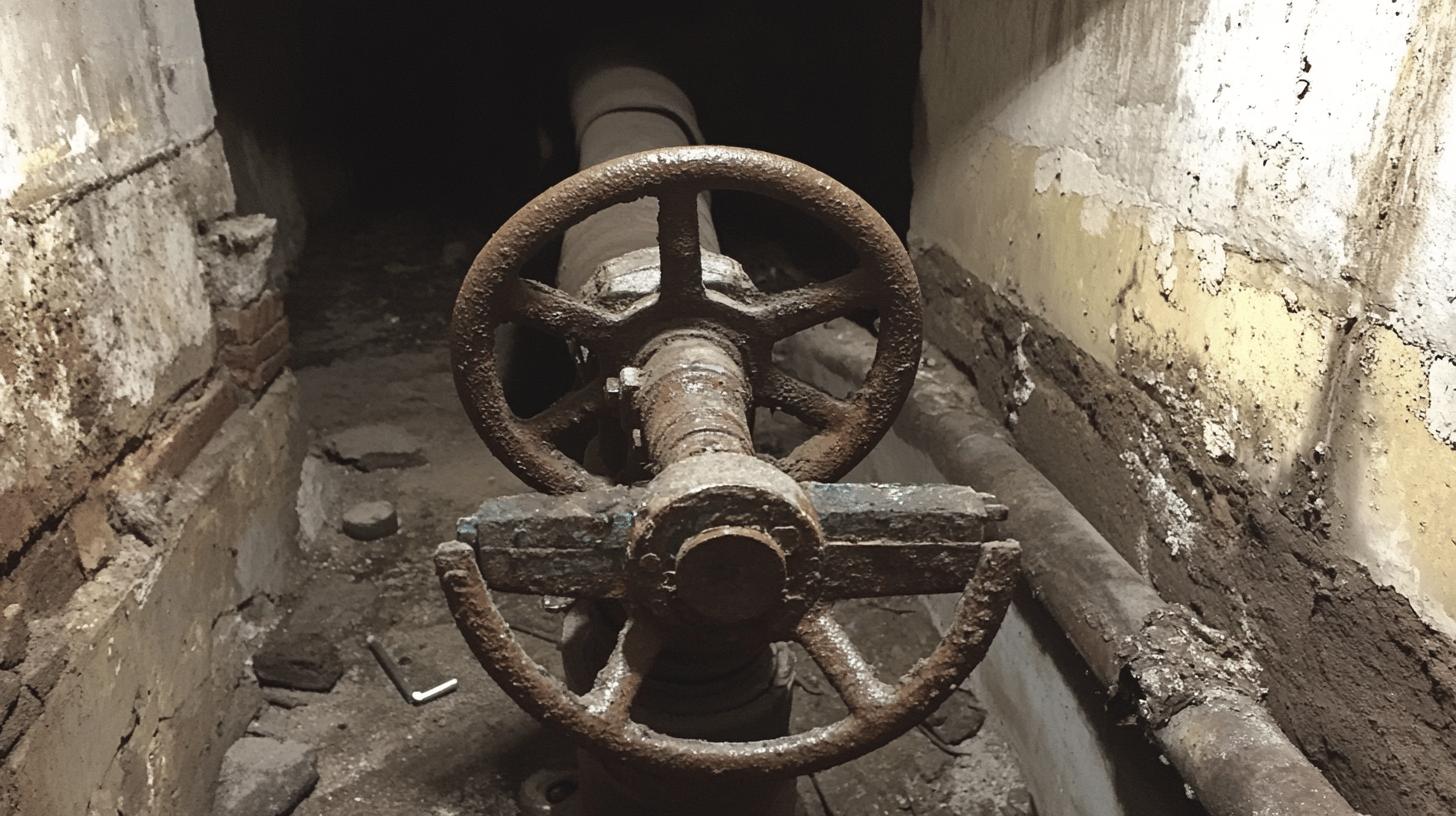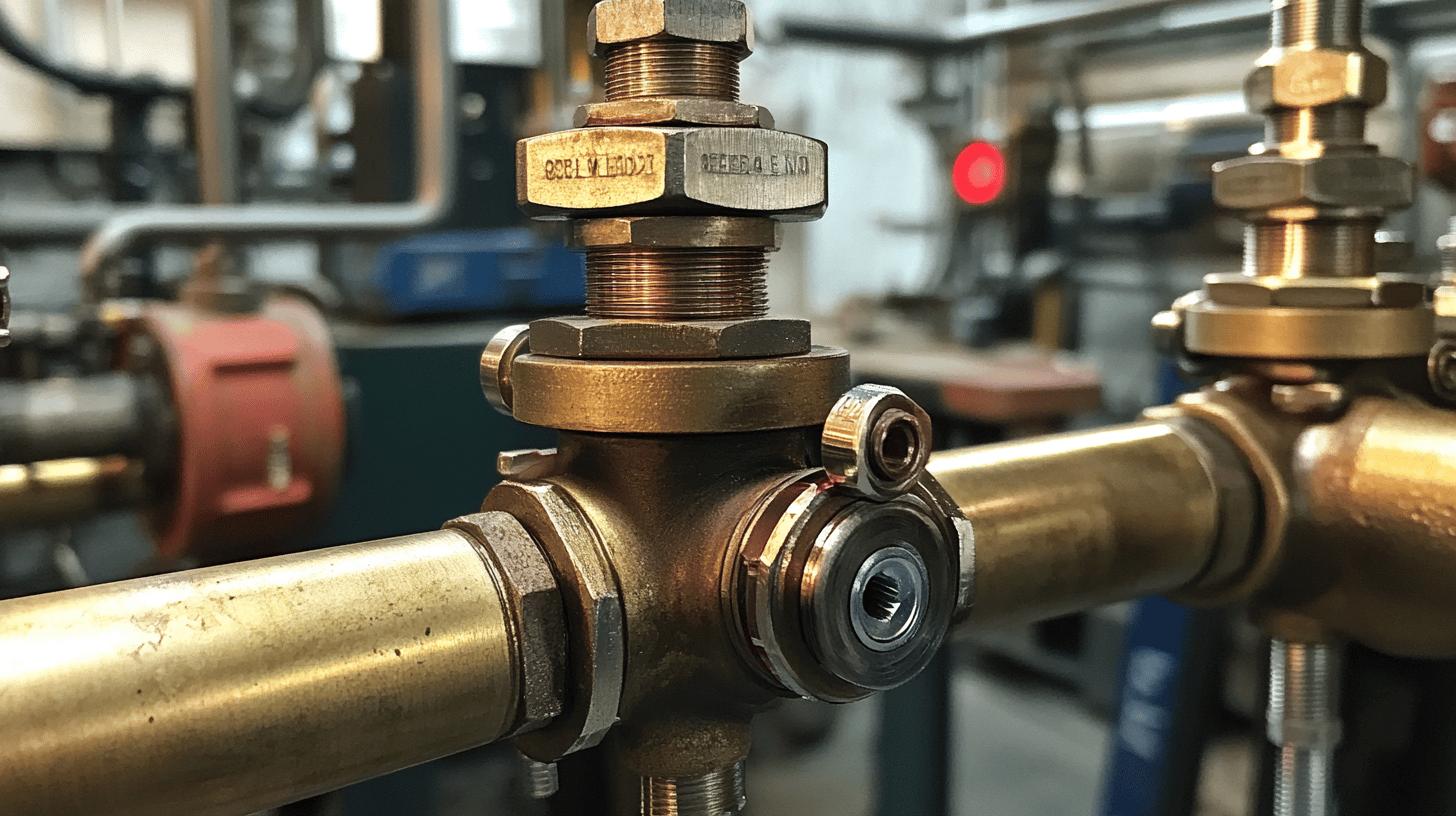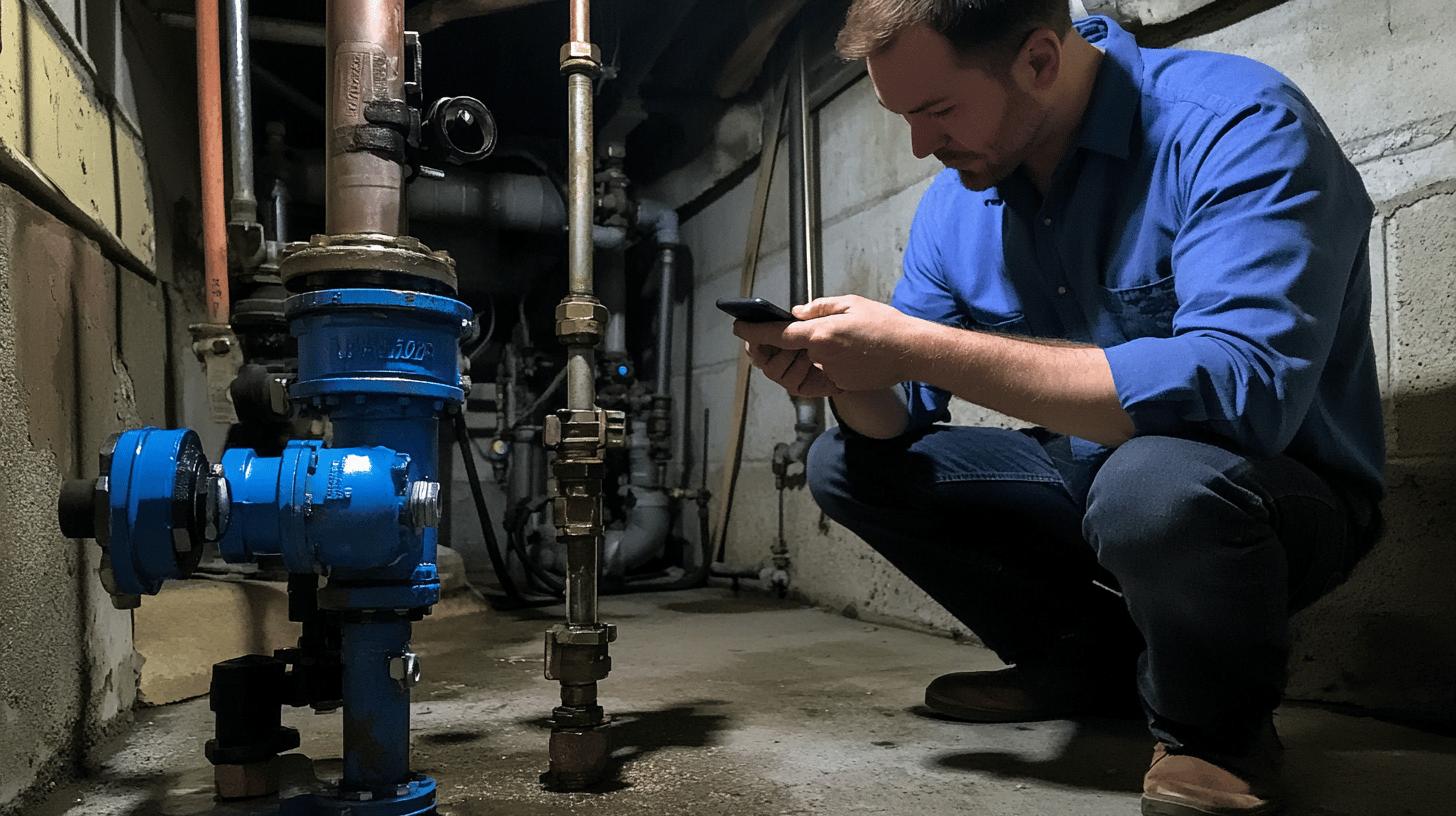TL;DR:
- Main Water Shut-Off Valves: Essential for managing water supply and preventing damage.
- Types:
- Gate Valves: Common in older homes; effective for full on/off but prone to wear and mineral build-up.
- Ball Valves: Durable, reliable, quick shut-off; preferred in new constructions.
- Globe Valves: Good for flow control, not ideal for shut-off.
- Installation: Best handled by professionals to ensure compliance and prevent leaks.
- Maintenance: Regularly operate valve, check for corrosion, and tighten loose parts.
- Choosing the Right Valve: Consider material (brass, stainless steel, PVC) and intended use; consult a plumber for tailored advice.
Have you ever thought about what controls the water coming into your house? Picking the right main water shut-off valve is more important than most people think. Without a good valve, you could end up with huge water leaks or damage in an emergency. In this article, we’ll go over the main types of valves—gate, ball, and globe—and why each one is important. Knowing about these valves helps you choose the best water control for your home. Keep reading to learn how to make the right choice for your place.
Overview of Main Water Shut-Off Valves
Main water shut-off valves are super important for controlling your home’s water supply. They help stop the flow of water if there’s a problem with the pipes, preventing potential damage. Knowing the different types of valves can help you choose the best one for your plumbing.
There are a few common types, like gate, ball, and globe valves. Gate valves, found in older homes, have a sliding gate that opens or closes the flow. They’re good for completely stopping the water, but they can wear out over time, especially if there’s debris inside.
Ball valves are popular in newer homes because they’re durable and easy to use. They have a rotating ball with a hole that lets you quickly shut off the water with just a quarter turn. Globe valves aren’t as common for main shut-offs but are used for controlling water flow when you don’t need to completely stop it.
Having one of these valves in your plumbing system is a must. They give you control over your water supply, which is crucial during emergencies or repairs. Each valve has its pros and cons, so talking to a plumber can help you get the right one installed and kept in good shape.
Gate Valves: Traditional Shut-Off Solution

Gate valves use a sliding gate to regulate water flow, ideal for full open or close tasks. Turning the handle lifts or lowers the gate, allowing or stopping water flow. However, debris can affect its sealing ability.
Advantages:
- Effective for full opening and closing
- Simple design with few parts
- Cost-effective for homes
- Available in many sizes and materials
- Easy to fit into existing systems
Disadvantages:
- Wears down over time
- May not seal well with debris
- Hard to tell if fully open or closed
- Takes multiple turns to operate
- Prone to mineral build-up
Gate valves are commonly found in older homes. Their traditional design suits municipal water control, but they require maintenance like handling mineral deposits. It’s good to frequently operate them, but for complex maintenance, a plumber’s advice might be necessary.
Ball Valves: Modern and Reliable
Ball valves are a great choice because they’re strong and reliable. They work with a rotating ball that has a hole in it. When you turn the handle 90 degrees, the hole either lets water through or blocks it completely. This simple design makes for a fast and tight shut-off, lowering the chances of leaks.
Advantages of Ball Valves
Ball valves offer key benefits:
- Durability: Made from strong materials, they resist wear, ensuring long use.
- Quick Shut-Off: Just a quick turn stops water flow, crucial in emergencies.
- Minimal Maintenance: Reliable design means less frequent maintenance needs.
- Tight Sealing: Excellent at preventing leaks, keeping the system secure.
- Versatility: Suitable for homes and commercial plumbing.
Ball valves are popular in new buildings because they’re easy to use and effective. Builders prefer them, especially in areas with modern plumbing systems. Their low-maintenance design makes them perfect for today’s plumbing, offering reliable protection against water problems.
Globe Valves: Regulating Flow in Plumbing

Globe valves are great for controlling water flow precisely, making them perfect for systems that need fine adjustments, like heating. They’re best for regulating flow rather than completely stopping it. While not ideal for main shut-offs, globe valves work well for throttling. However, they don’t seal off water completely, so ball or gate valves are usually better for emergency shut-offs.
Valve Installation and Maintenance Tips
Installing a shut-off valve might seem easy, but it’s best to leave it to a pro. A plumber ensures the valve is properly aligned and sealed, avoiding leaks and ensuring everything works efficiently. They also follow local plumbing codes, preventing legal or repair problems later on. Plus, they’ll pick the right valve type and material for your specific plumbing needs.
Essential Maintenance Practices:
- Regularly turn the valve to prevent sticking.
- Check for corrosion or build-up.
- Tighten any loose parts to avoid leaks.
- Replace worn parts quickly.
- Arrange professional checks regularly.
Problems like leaks or valve operation issues may occur despite good installation. Checking for mineral build-up can help, but for persistent issues, a plumber can offer professional solutions, keeping your system secure.
Choosing the Right Main Water Shut-Off Valve

Several factors influence choosing the right valve, like the material, which affects durability and corrosion resistance. Brass, stainless steel, and PVC offer different strengths. The valve’s use matters too; ball valves are loved for their tight seal and ease of use, great for shut-off needs.
| Valve Type | Pros | Cons |
|————|——|——|
| Gate | – Cost-effective
– Widely available | – Prone to wear
– Needs several turns |
| Ball | – Durable
– Quick shut-off | – Higher cost
– Not for throttling |
| Globe | – Good for flow control
– Versatile | – Not ideal for shut-off
– Can restrict flow |
It’s important to consult a professional when choosing a valve. They can give you advice based on your specific plumbing setup, making sure everything works well and follows local codes. Their expertise helps prevent problems like leaks or failures, which can protect your system in the long run.
Final Words
Knowing what type of valve controls your main water shut-off is key to managing your home’s plumbing. Gate and ball valves are the top choices, with ball valves being preferred in newer homes for their reliability and ease of use. Globe valves are great for regulating flow but aren’t ideal for complete shut-offs.
When choosing a valve, think about factors like durability and maintenance. It’s smart to get professional help with installation and maintenance to ensure everything runs smoothly. With the right valve and care, your plumbing system will be efficient and reliable.
FAQ
What type of valve is best for main water shut off?
A ball valve is best for main water shut off. Its design ensures durability, reliable sealing, and easy operation with a quarter turn, making it ideal for efficient water control.
Which is better for main line shut off: gate valve or ball valve?
A ball valve is preferred over a gate valve for main line shut off. Ball valves provide a more reliable seal, require less maintenance, and are more durable compared to gate valves.
What valves are used for shut off service?
Shut off services typically use ball valves, gate valves, and globe valves depending on the specific plumbing requirements, with ball valves being the most popular for main shut off purposes.
Which type of valves are commonly used in residential water supply lines?
Residential water supply lines commonly use ball valves and gate valves. Ball valves are increasingly popular for their ease of use and reliable performance in shutting off water flow.

